A coming of age for gender in global health
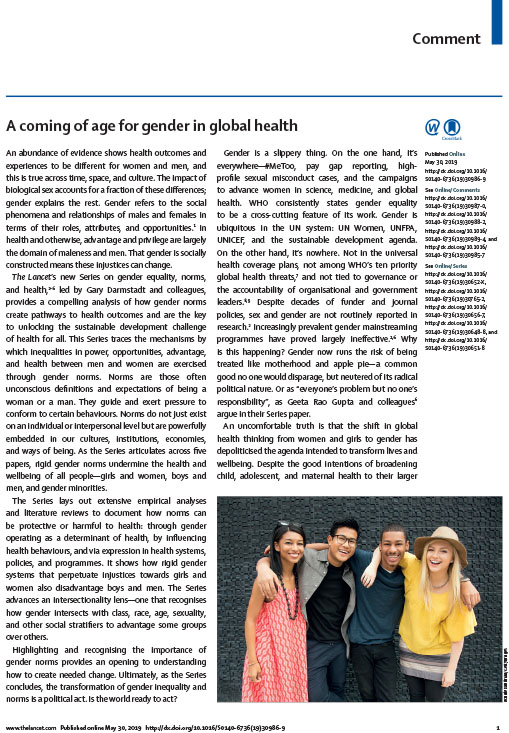
An abundance of evidence shows health outcomes and experiences to be different for women and men, and this is true across time, space, and culture. The impact of biological sex accounts for a fraction of these differences; gender explains the rest. Gender refers to the social phenomena and relationships of males and females in terms […]
Allowing Men to Care
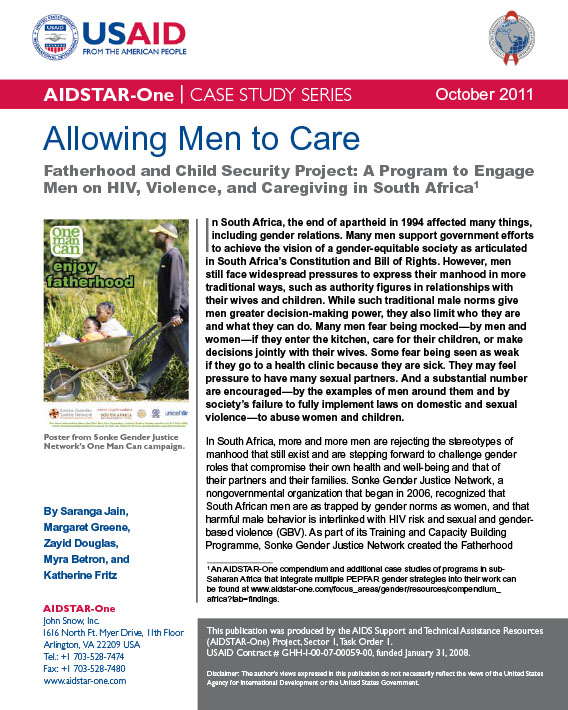
In South Africa, the end of apartheid in 1994 affected many things, including gender relations. Many men support government efforts to achieve the vision of a gender-equitable society as articulated in South Africa’s Constitution and Bill of Rights. However, men still face widespread pressures to express their manhood in more traditional ways, such as authority […]
Strategies for engaging men in HIV services
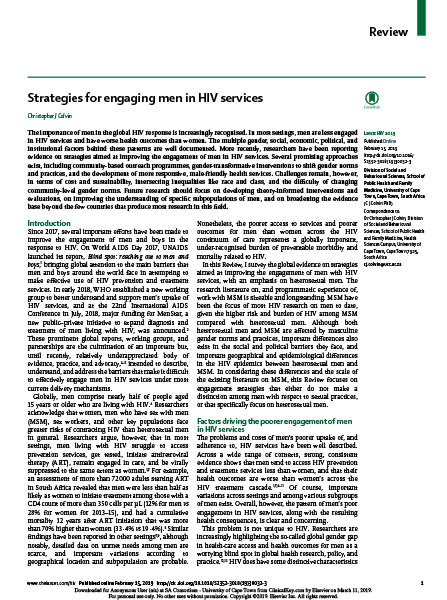
The importance of men in the global HIV response is increasingly recognised. In most settings, men are less engaged in HIV services and have worse health outcomes than women. The multiple gender, social, economic, political, and institutional factors behind these patterns are well documented. More recently, researchers have been reporting evidence on strategies aimed at […]
Cost-Effectiveness of HIV Pre-exposure Prophylaxis Among Heterosexual Men in South Africa: A Cost-Utility Modeling Analysis
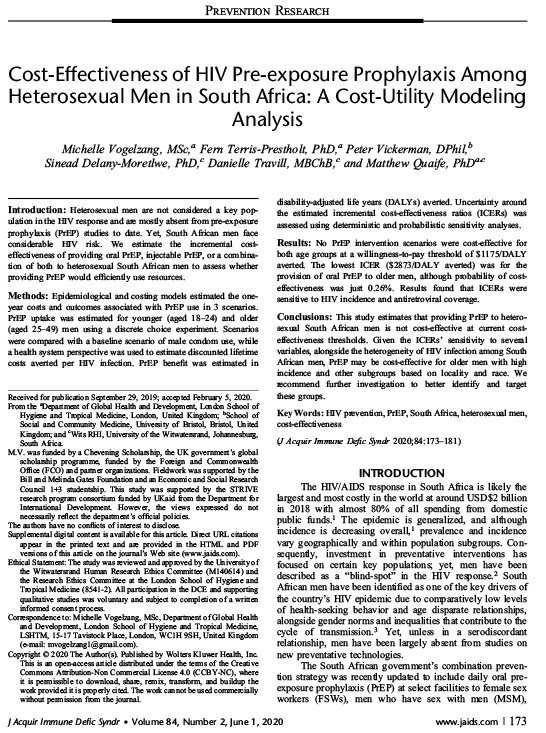
Introduction: Heterosexual men are not considered a key population in the HIV response and are mostly absent from pre-exposure prophylaxis (PrEP) studies to date. Yet, South African men face considerable HIV risk. We estimate the incremental cost-effectiveness of providing oral PrEP, injectable PrEP, or a combination of both to heterosexual South African men to assess whether providing […]
Structural drivers and social protection: mechanisms of HIV risk and HIV prevention for South African adolescents.
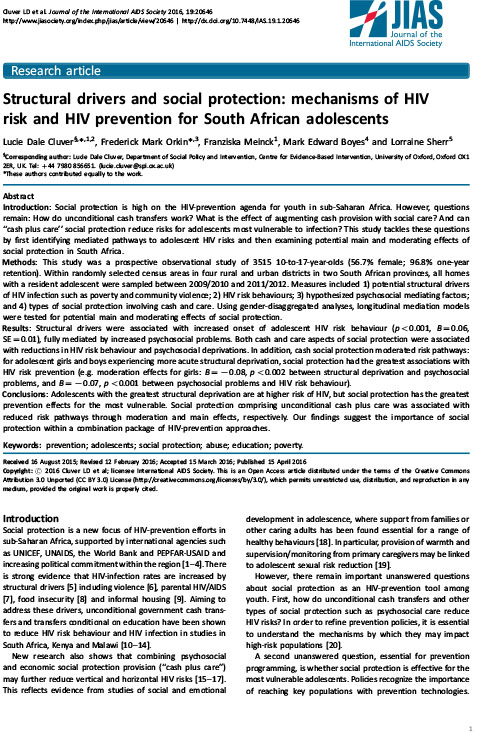
Introduction Social protection is high on the HIV-prevention agenda for youth in sub-Saharan Africa. However, questions remain: How do unconditional cash transfers work? What is the effect of augmenting cash provision with social care? And can “cash plus care” social protection reduce risks for adolescents most vulnerable to infection? This study tackles these questions by […]
Early antiretroviral therapy improves neurodevelopmental outcomes in infants
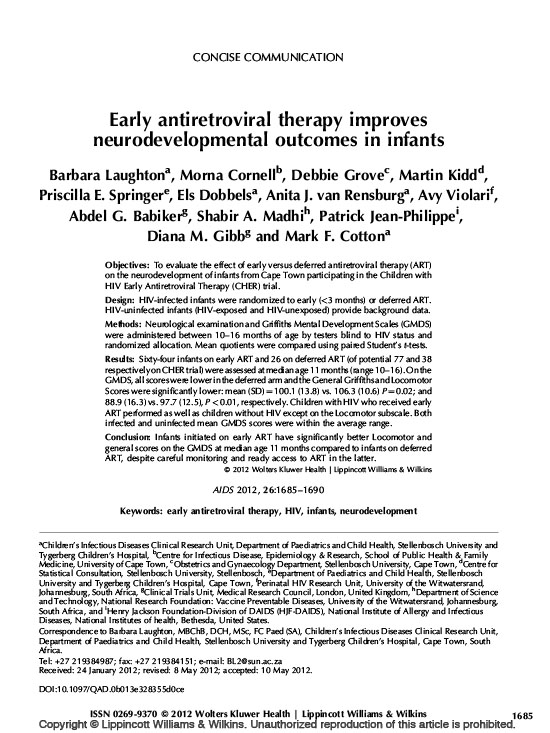
Objectives To evaluate the effect of early versus deferred antiretroviral therapy (ART) on neurodevelopment of infants from Cape Town participating in the CHER (Children with HIV Early Antiretroviral Therapy) trial. Design HIV-infected infants were randomised to early (<3 months) or deferred ART. HIV-uninfected infants (HIV-exposed and HIV-unexposed) provide background data. Methods Neurological examination and Griffiths Mental Development […]
Reaching key adolescent populations
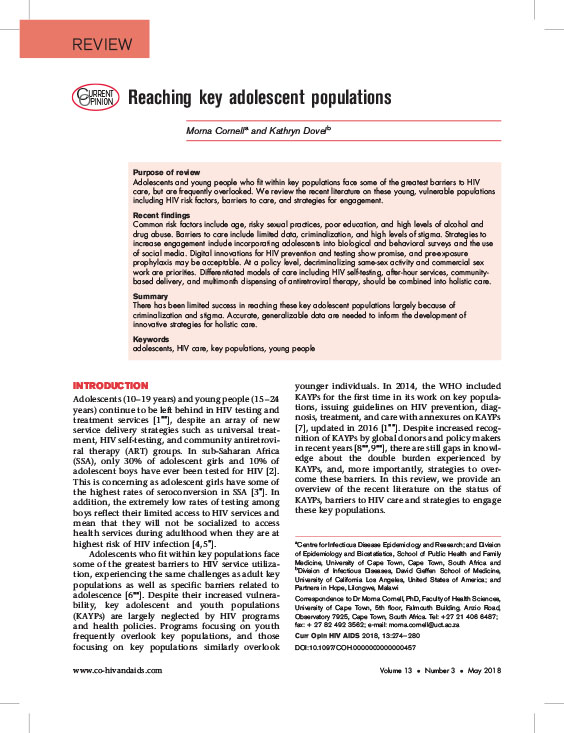
Purpose of review Adolescents and young people who fit within key populations face some of the greatest barriers to HIV care, but are frequently overlooked. We review the recent literature on these young, vulnerable populations including HIV risk factors, barriers to care and strategies for engagement. Recent findings Common risk factors include age, risky sexual […]
“Khotla Bophelong Bo Botle”: a gathering of men for health
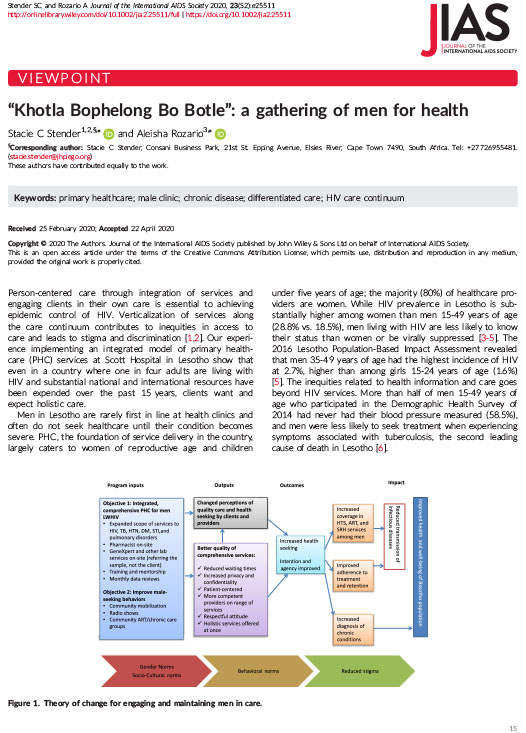
Person‐centered care through integration of services and engaging clients in their own care is essential to achieving epidemic control of HIV. Verticalization of services along the care continuum contributes to inequities in access to care and leads to stigma and discrimination. Our experience implementing an integrated model of primary healthcare (PHC) services at Scott Hospital […]
An implementation study of oral and blood-based HIV self-testing and linkage to care among men in rural and peri-urban KwaZulu-Natal, South Africa
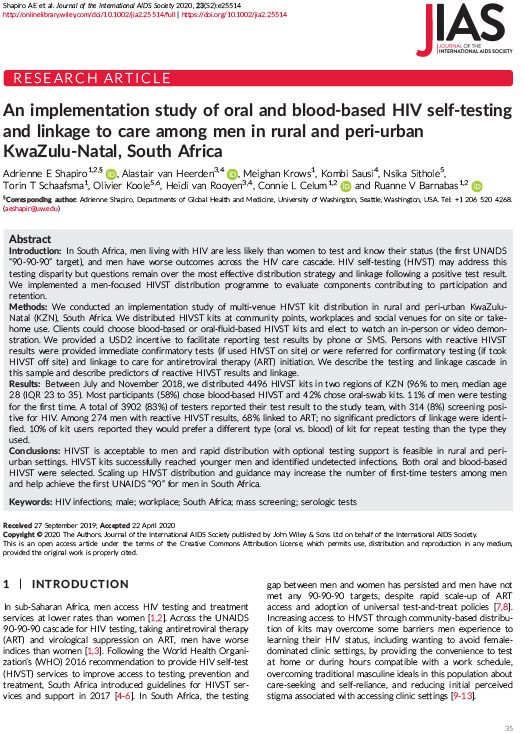
Introduction In South Africa, HIV-infected men are less likely than women to test and know their status (the first UNAIDS “90-90-90” target), and men have worse outcomes across the HIV care cascade. HIV self-testing (HIVST) may address this testing disparity but questions remain over the most effective distribution strategy and linkage following a positive test […]
Population-wide differentials in HIV service access and outcomes in the Western Cape for men as compared to women, South Africa: 2008 to 2018: a cohort analysis
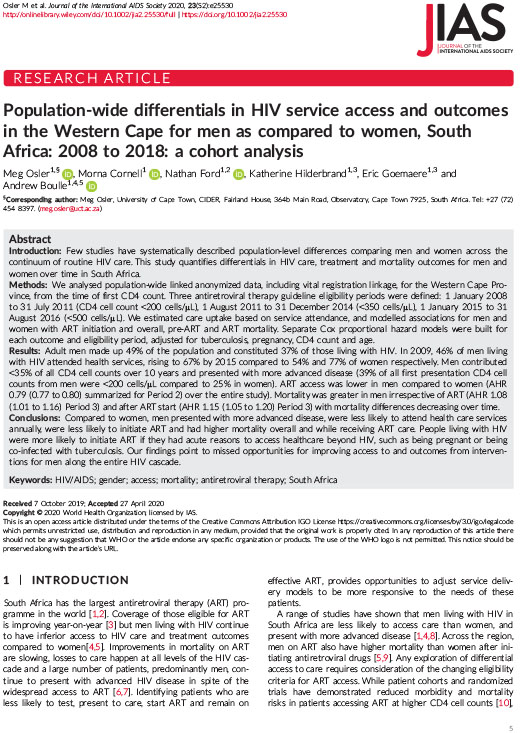
Introduction Few studies have systematically described population-level differences comparing men and women across the continuum of routine HIV care. This study quantifies differentials in HIV care, treatment and mortality outcomes for men and women over time in South Africa. Methods We analysed population-wide linked anonymized data, including vital registration linkage, for the Western Cape Province, […]


